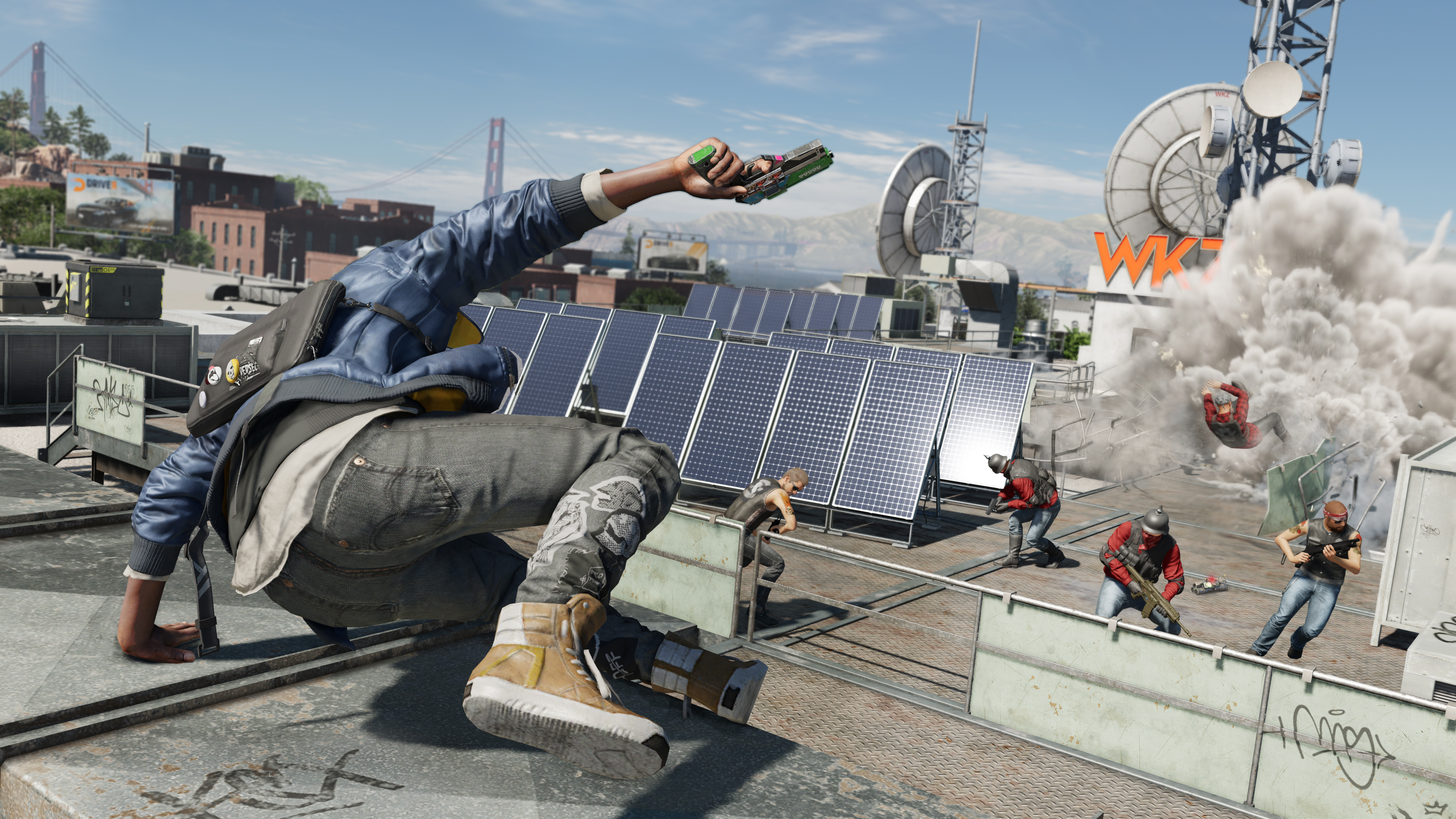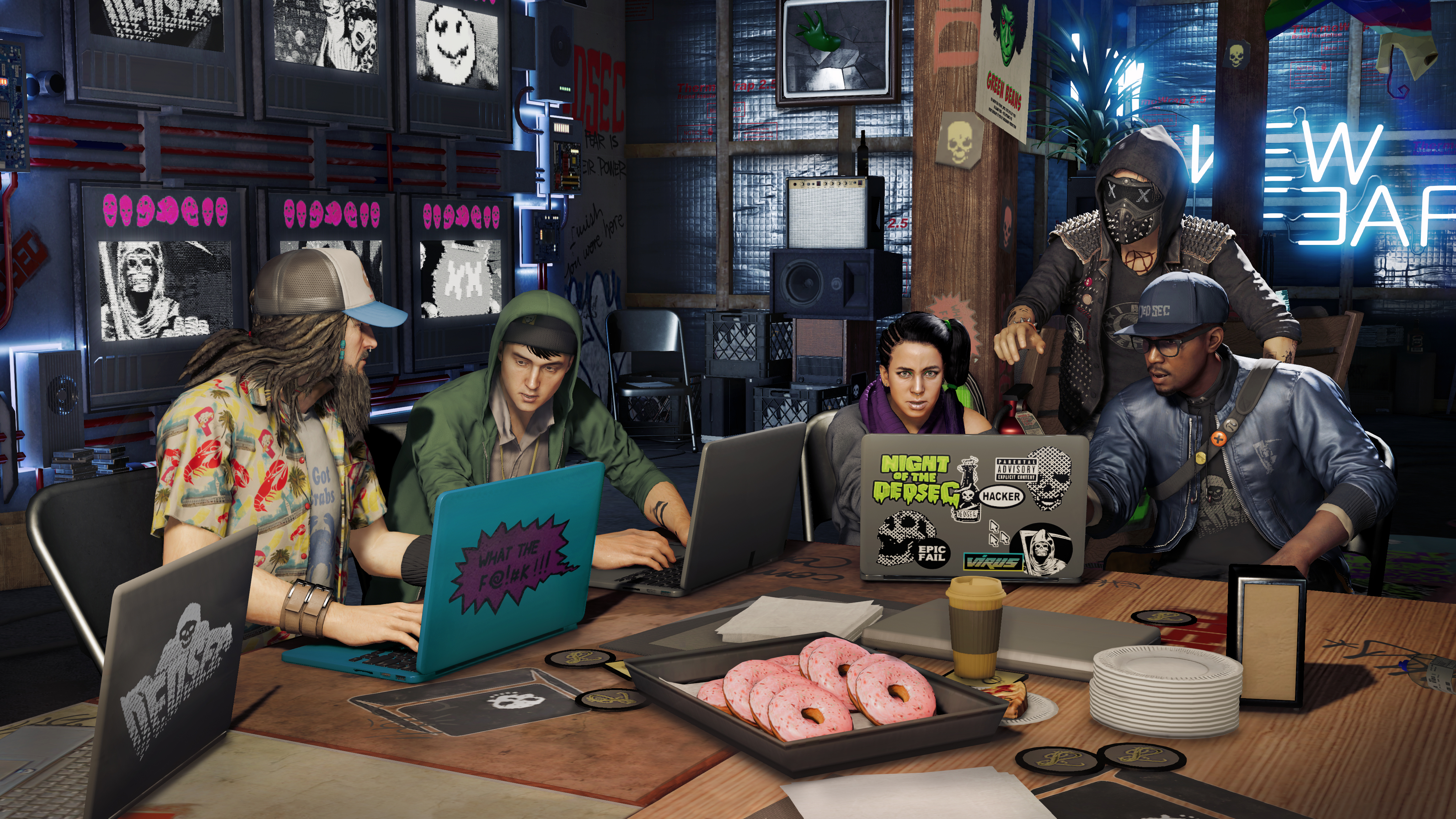Library Days 002: Watch Dogs 2
Watchdogs 2’s LulzSec Playbook.
For my second Library Days game, I got to play Watch Dogs 2, after a few months waiting for my hold to come up in the queue (incidentally, my hold on Legend of Zelda: Breath of the Wild is now number 30 of 41: progress). I was intrigued after I heard that the game featured a transgender city council member as an ally to its hacker heroes. I was happy to see a lot of great representation of a very diverse cast in the game, though some of it seemed a bit stereotypical and broad.
I didn’t play the original Watch Dogs. I remember it being a fairly hyped title when early gameplay trailers was shown. It appeared to be everything that open-world games had been trying to achieve for years, combining the hacking mini-game play of many of its contemporaries, with vertical scaling and stealth of Assassin’s Creed, the vehicles and wanton violence of Grand Theft Auto, and a focus on dynamic “play your way” gameplay. It was straight out of the Ubisoft marketing playbook, and is one reason many of their titles seem to engender a certain amount of disdain and disillusionment upon release; the hype can’t be matched by the product, partially because the product is mismarketed as something it’s not (see also, Assassin’s Creed: Unity, and The Division especially, which was marketed as an online FPS, when it’s far more an MMORPG).

I don’t recall entirely what the letdown was with Watch Dogs; graphical downgrades, a disappointingly tepid and humorless revenge plot with a boring lead, uncooperative controls, etc. I think I heard everything get bashed, but it’s clear the product missed the intended mark. Ubisoft seems to have taken a completely different tack with Watch Dogs 2, which takes a broad aim at Silicon Valley with a great deal of late 20th century garage-band themed humor and style, and contemporary idealist hacktivist narratives; merging the early 80’s punk rock aesthetic with a world of idealistic leaks and online activism. The message: hacking is the New Punk Rock. Considering that at the same time as punk was moving from the underground to mainstream, Steve Jobs and Steve Wozniak were building the first Apple computers in a Jobs’ garage, there may be something to it metaphorically, as well.
It’s been a while since I read Parmy Olson’s We Are Anonymous: Inside the Hacker World of LulzSec, Anonymous, and the Global Cyber Insurgency, but it’s a particularly salient read in regards to Watch Dogs 2, which seems to draw if not inspiration directly from it, then at least from the events about which it references. Olson’s tome draws from online and in-person interviews to tell the story of the rise of Anonymous as a hacktivist collective, and a small group of influencers who were major players in its early altruistic operations, who eventually went on to form LulzSec. I won’t claim to know anything first-hand about how Anonymous works, or LulzSec’s motives or actions, but Olson’s book is a compelling read (though I’ve seen a few reviews that describe much of it as hearsay and inaccurate), that at least gives some insight into the hackivist world for luddites like myself.

The Watch Dogs series clearly has at least a bit of an eye on this stuff, since even the first named their hacker protagonists insurgent cell DedSec, which takes on a much more idealistic purpose in the second game. It’s hero, Marcus Holloway, acts not out of a need for revenge, but idealism; after a hacking audition where he erases a criminal record based automated profiling (Marcus is black, and the game’s examination of subtle racism is a major theme) he’s invited into the local hacktivist cell. This is one area where game diverges heavily from Olson’s book-as-blueprint, since the leaders of LulzSec organized across international boundaries; but for the convenience of cut-scene storytelling it’s smoother to get all your heroes into the same room.
But other elements stand out, with some missions in the game drawn directly from real life. One plot point involves a movie star under the thrall of a brainwashing religion, New Dawn, that takes it’s inspiration from Anonymous’ Operation Chanology, where the real group targeted Scientology (and whose actions may have helped pave the way for media projects aimed at the religion, like HBO’s documentary, Going Clear, and the recent My Scientology Movie). Watch Dogs 2 is at least a little circumspect about it, their New Dawn recruitment facility is in a different area of their fairly street-accurate San Francisco than the Church of Scientology’s actual location on Montgomery street. Other stories are more contemporary, like a mission to steal funds from a corporate pharmaceutical magnate by fraudulently selling him exclusive rights to a hip-hop artist’s new tracks; referencing Martin Shkreli’s exclusive purchase of a Wu Tang Clan album.
[youtube https://www.youtube.com/watch?v=pv8vvcUTOAs&w=1280&h=720]
There’s some incredibly contemporary elements of the story, as well. A politician who, in collusion with the power-broker villain, drives traffic to his social media pages by manipulating the stories that appear on their feeds. Just days ago it was leaked that part of the subject of the FBI’s probe into Russian interference in the American election included how bots were used to drive fake news to social media. Keep in mind that video games have long production cycles, so a great deal of the story and plot would have had to have been developed in advance of these becoming major news stories. Similarly, the heroes are able to power their hacking ability by gaining followers, who contribute their electronic devices voluntarily to DedSec’s botnets (distributed computing that uses background processes of computers to overpower security and other processes that require a lot of processing power).
Botnets also figure heavily into We Are Anonymous, which, if you enjoyed or are fascinated by the plot of Watch Dogs 2, isn’t a bad place to learn more about the background of today’s online activism, freedom of information leak culture, and government overreach. Check your local library, it’s a fun read.




